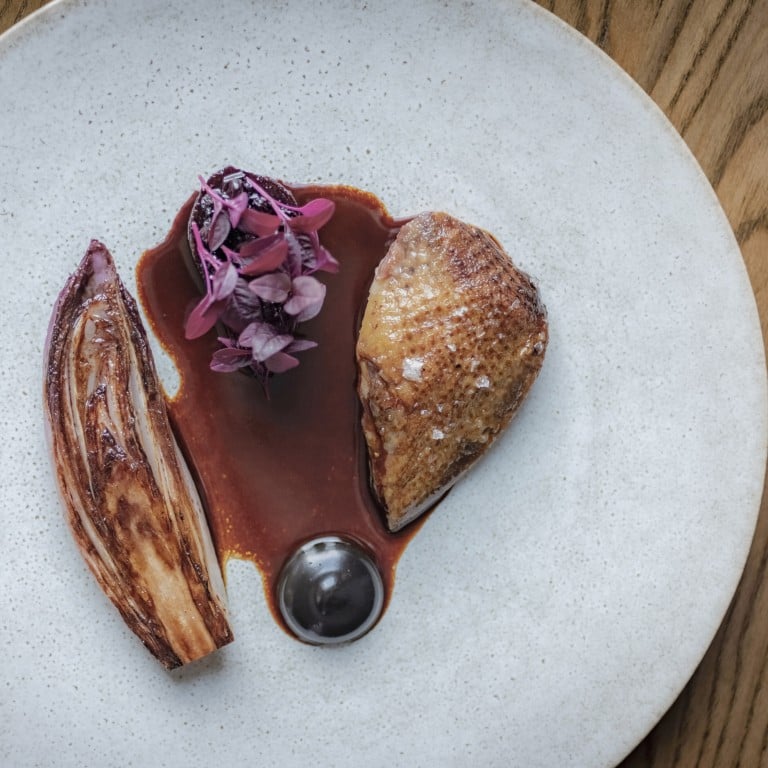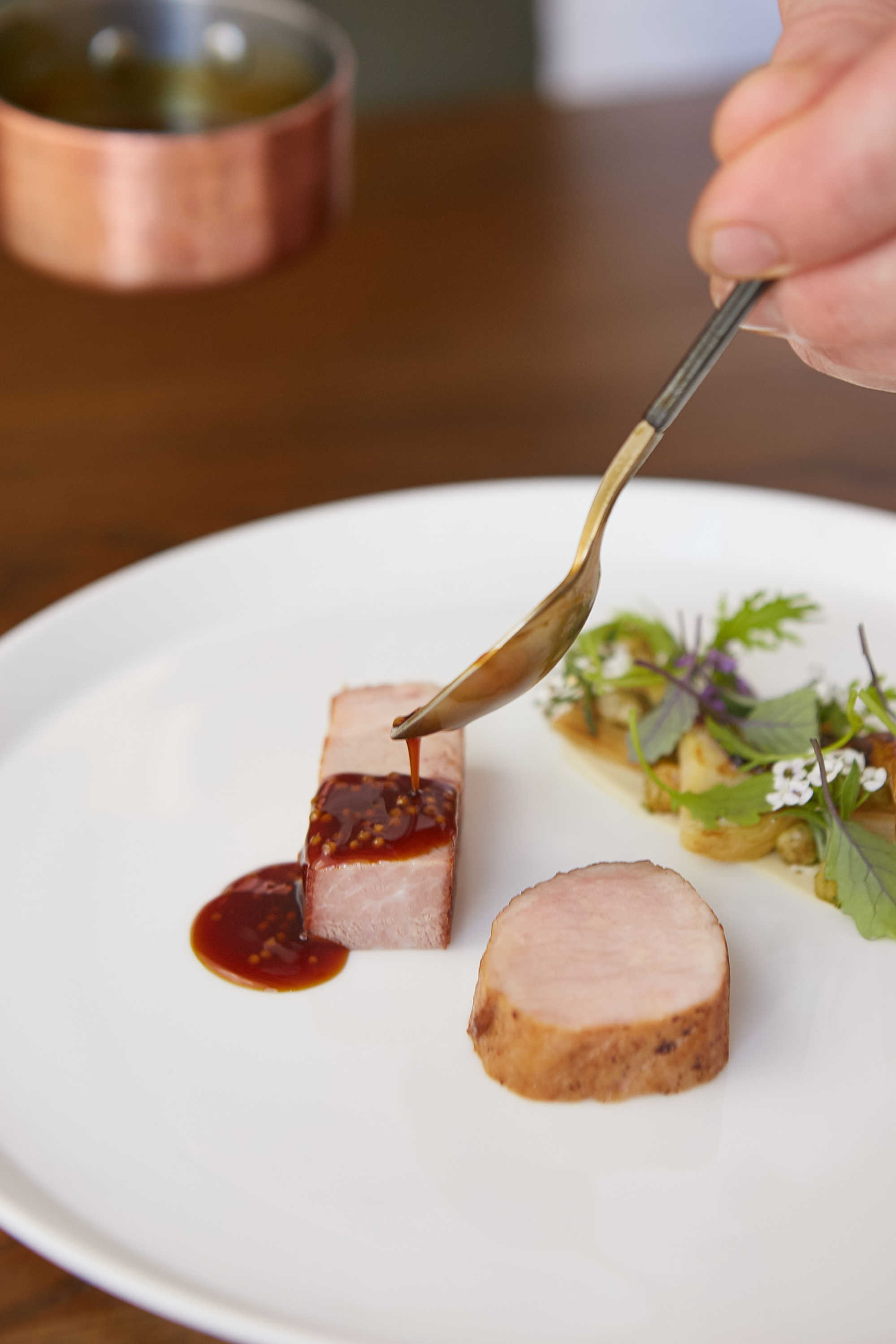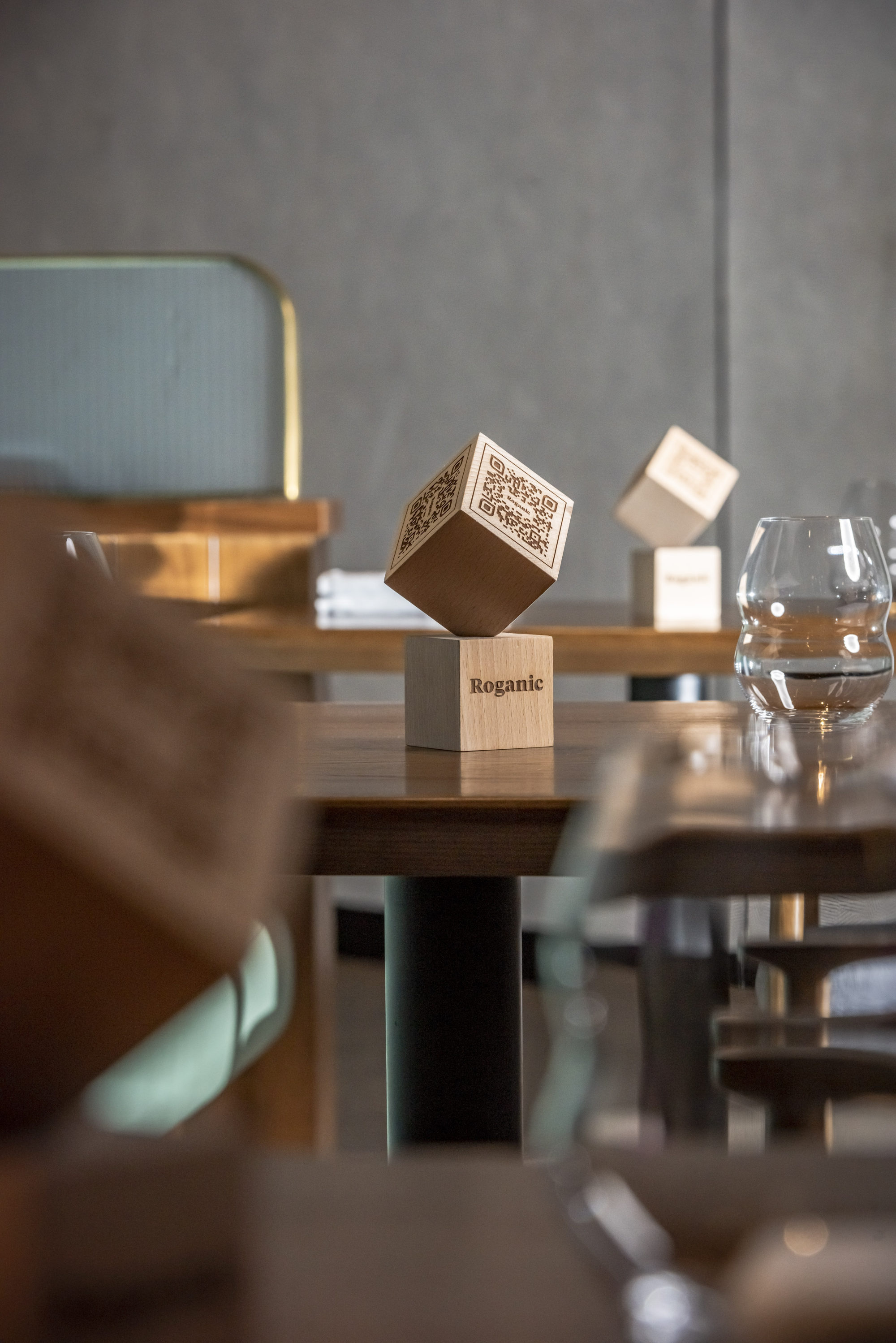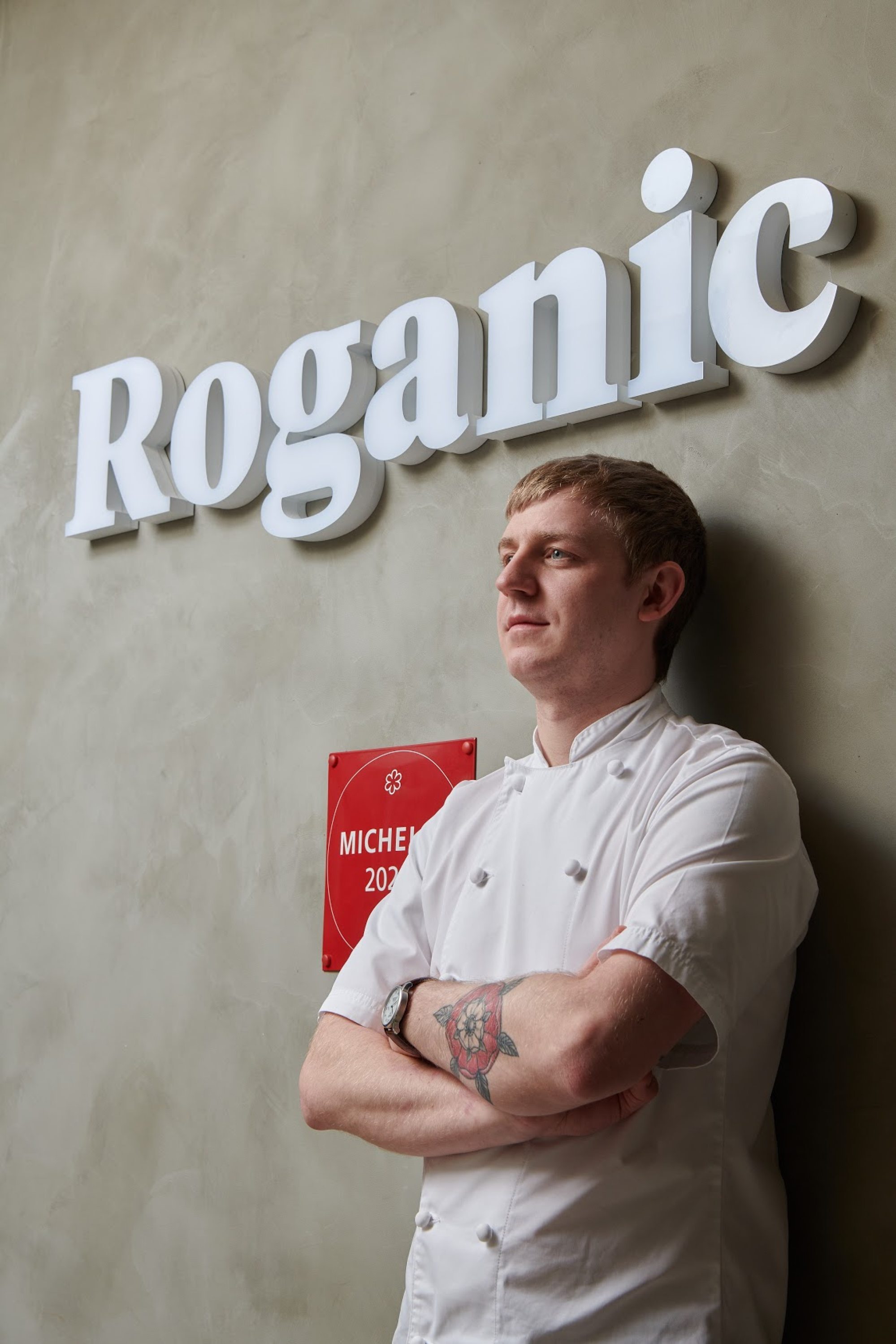Roganic’s farm-to-fork-approach: how the British fine dining restaurant reduced its carbon footprint and paved the way for a sustainable revolution in Hong Kong

Combining a passion for sustainability with an innovative approach to British cuisine proved to be a winning formula for the chef, who opened Roganic in London in 2011 and, eight years later, in Hong Kong. It’s no wonder, then, that Roganic Hong Kong – a contemporary British fine dining eatery located in the heart of Causeway Bay – earned the city’s first Michelin Green Star, and has now won 100 Top Tables’ inaugural Sustainability Hero award, which recognises the restaurant’s pioneering spirit in what can, at times, be a challenging city to implement sustainable practices.
10 years of 100 Top Tables: behind SCMP’s fine dining awards

Roganic contextualises Rogan’s “farm-to-fork” dining approach within a cosmopolitan city setting, bringing the philosophy established at L’Enclume to a new clientele. Developing close ties with leading produce farms and suppliers across Hong Kong allows the restaurant to reflect the best of the season on its menus.
Roganic’s approach to sustainability is manifold, from turning food waste into hero ingredients, celebrating the best in local produce, growing its own micro herbs and reducing single-use plastic consumption.
Our bartender is even working on a recipe for home-made tonic water to reduce our need for bottled drink
But Roganic’s philosophy isn’t only implemented behind closed doors, it’s felt by diners, too. Continuing its commitment to waste reduction has been no easy task, particularly in the midst of the Covid-19 pandemic and a reliance on single-use products to ensure safety and hygiene standards remain high. One step that was possible: menus have been replaced with QR codes, contributing to the restaurant reducing its plastic consumption by 80 per cent.

Meanwhile waste ingredients are repurposed and turned into treasured components of the restaurant’s dishes and cocktails. “We use as much waste product as possible and find value for them, creating a coffee liqueur and caramel used in the cuisine, and drawing flavour from old coffee grounds to infuse in cocktails and bar bitters,” explains Ashley Salmon, who stands at the helm of the Hong Kong outpost as head chef. Coffee grounds, he explains, are then turned into compost with the help of local social enterprise Eco-Greenergy.
Why Tirpse’s Rin Horiuchi was crowned the best pastry chef in Hong Kong
But it doesn’t stop there. Pineapple cores and lemon skins, which would ordinarily be discarded as waste after a staff breakfast, become the hero ingredients of the restaurant’s tepache, a Mexican lemonade infused with pineapple, while bottled water is omitted from tables in favour of water filtered in-house. “Our bartender is even working on a recipe for home-made tonic water to reduce our need for bottled drinks,” Salmon boasts.

While each dish on Roganic’s menu demonstrates a commitment to sustainable dining, the seasonal duck main course is arguably its best demonstration. It starts with a whole duck, locally sourced from a farm in the nearby New Territories, explains Salmon. “We hang them to dry, giving them an extra depth of flavour. It is then carved, and we use the breast for the dish. Then everything from nose to tail is used to make the sauce,” Salmon says proudly.
The duck is then glazed in a local 100-flower honey, and the dish is finished with locally sourced beetroot and cabbage and a home-made black garlic seasoning. Taking the nose-to-tail philosophy and applying it to the accompanying ingredients, beetroot tops and trimmings are used to infuse a non-alcoholic drink which has been carefully crafted to complement this course, effectively “closing the loop”, Salmon explains.

Since opening its doors in Hong Kong in 2019, Roganic has established itself as a leader in the city’s sustainability movement, collaborating with other restaurants on a series of pop-up initiatives and establishing its Friends of Sustainability series.
The 100 Top Tables Sustainability Hero accolade recognises Roganic’s commitment to sustainability beyond its carbon footprint and consumption habits. Its definition of sustainability encompasses the well-being of its staff. This has led to the restaurant adopting a four-day work week for front-of-house and kitchen staff members – a pioneering move in an industry known for its long hours.
Which restaurants offer the best service and ambience in Hong Kong?
Upcoming initiatives remain under wraps for the time being, but Salmon assures us of an exciting year ahead for Roganic and a continued commitment to its sustainability pledge.

- 100 Top Tables’ inaugural Sustainability Hero winner, Roganic Hong Kong turns food waste into key ingredients, grows its own micro herbs on-site and cuts out single-use plastic
- Also the city’s first Michelin Green Star holder, the restaurant has adopted a four-day work week for staff – a pioneering move in an industry known for its long hours